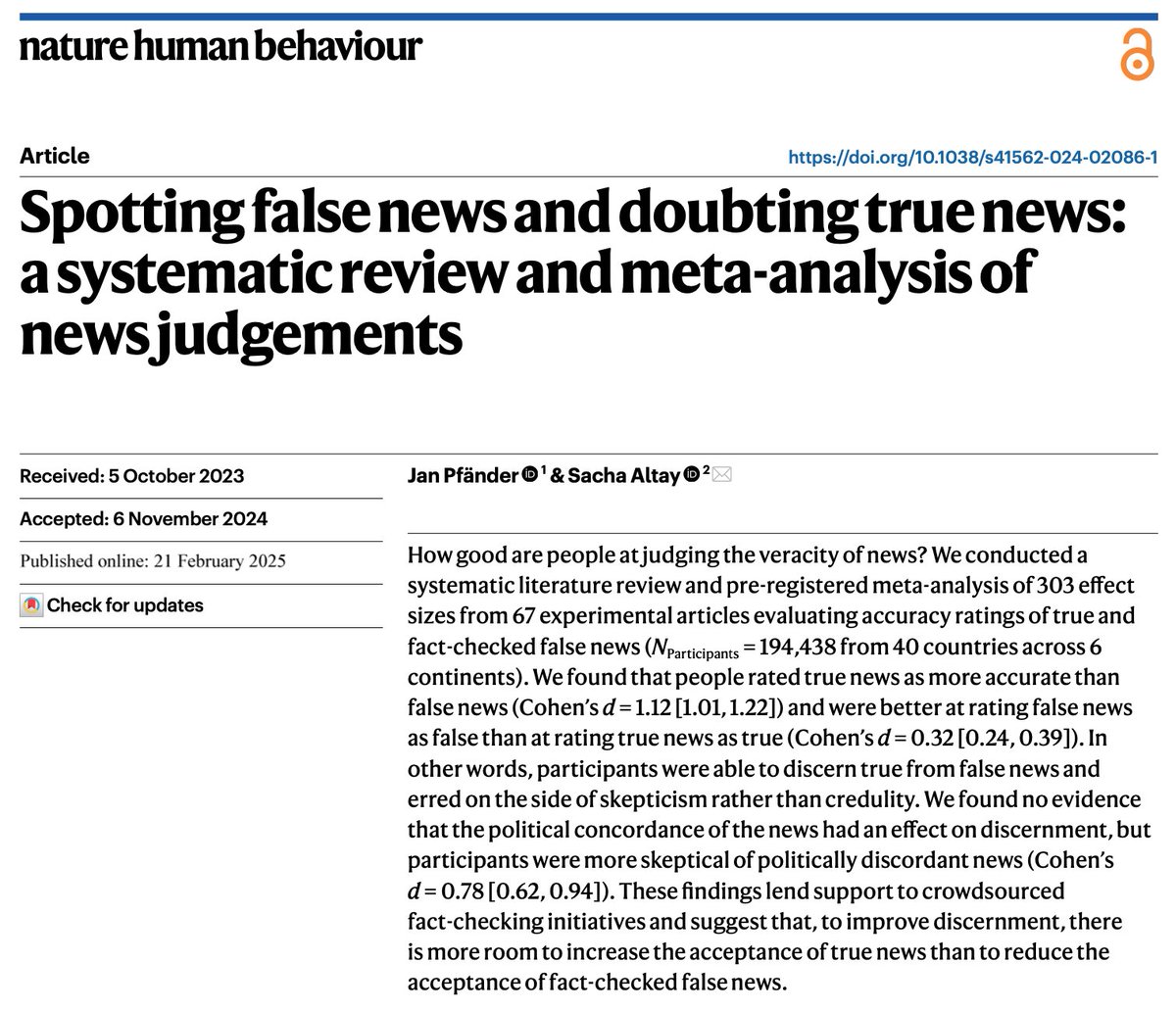
Mikey Biddlestone
@biddlepsych
Research Associate @COSPIRACY_FX @KentPsychology @UniKent. Studying Misinformation | Conspiracy Beliefs | Political Psychology (he/him).
ID: 1108857004330758145
https://scholar.google.com/citations?user=k2uKixgAAAAJ&hl=en 21-03-2019 22:24:46
419 Tweet
707 Followers
401 Following




New paper with my dearest friend, Kenzo Nera! We propose that multi-study articles can hardly achieve conceptual novelty and statistical consistency while remaining transparent. Fulfilling two of these criteria considerably reduces the probability of satisfying the third one.


